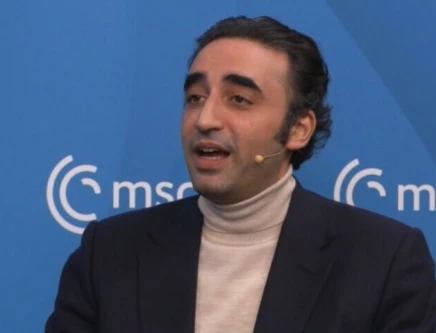Pakistan Peoples Party Chairman Bilawal Bhutto-Zardari has emphasized Pakistan’s role as a mediator between China and the United States. Speaking at the Munich Security Conference, he said Pakistan aims to bridge global divisions rather than deepen them.
Bilawal stressed that Pakistan has historically facilitated dialogue between Beijing and Washington. He highlighted that Pakistan does not want to be placed in any geopolitical camp but instead seeks to act as a neutral player in fostering cooperation.
Engagement with the US
Bilawal described US President Donald Trump as a “deal maker.” He suggested that Pakistan could work with the US on regional challenges under Trump’s leadership.
He also raised concerns about Washington’s support for India as a counterweight to China. He warned that this strategy could lead to an arms race in South Asia. He stated, our country prefers stability and dialogue rather than military competition.
Pakistan’s Relations with China
Bilawal reaffirmed Pakistan’s strong ties with China while underscoring the need to maintain global connectivity. He said Pakistan does not believe in zero-sum diplomacy and values its relationships with both global powers.
Last year, Pakistan’s Foreign Office reiterated that its relations with China and the US were equally important. Islamabad dismissed the notion that strengthening ties with one country should come at the cost of another.
Security Challenges and the Afghanistan Factor
Bilawal linked Pakistan’s security concerns to the US withdrawal from Afghanistan. He argued that the departure of American forces strengthened militant groups such as the Tehreek-i-Taliban Pakistan (TTP) and Daesh.
He recalled Pakistan’s past success in countering terrorism and stressed the need for political consensus to tackle the resurgence of militancy. He urged regional cooperation to ensure long-term security and stability.
Pakistan’s Historic Role in US-China Relations
Pakistan played a key role in establishing diplomatic ties between the United States and China in the early 1970s. In 1971, it facilitated secret communications between US President Richard Nixon and Chinese Premier Zhou Enlai. Then-President Yahya Khan acted as a mediator.
Islamabad arranged a covert visit for US National Security Adviser Henry Kissinger to Beijing in July 1971. Officially, Kissinger was in Pakistan, but he feigned illness and was secretly flown to China.
This visit led to Nixon’s historic trip to China in 1972, marking the beginning of formal diplomatic relations. Pakistan’s involvement earned it diplomatic goodwill from both nations and strengthened its global standing.
Diplomatic Gains for Pakistan
Pakistan’s efforts in US-China rapprochement boosted its international reputation. It leveraged these relationships to navigate regional tensions, particularly with India. Bilawal suggested that Pakistan can once again use diplomacy to bring major powers together.
As global tensions rise, Islamabad sees itself as a potential stabilizer in international politics. Bilawal’s remarks reflect Pakistan’s desire to play a constructive role in global diplomacy, just as it did five decades ago.
Related Stories:
Pakistan and China Sign Multiple MoUs for Bilateral Cooperation in Diverse Fields
Pakistan and China Forge Stronger Ties: Six Agreements and MOUs Signed for Economic Cooperation
















